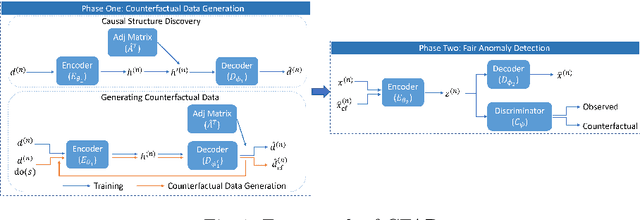Achieving Counterfactual Fairness for Anomaly Detection
Paper and Code
Mar 04, 2023



Ensuring fairness in anomaly detection models has received much attention recently as many anomaly detection applications involve human beings. However, existing fair anomaly detection approaches mainly focus on association-based fairness notions. In this work, we target counterfactual fairness, which is a prevalent causation-based fairness notion. The goal of counterfactually fair anomaly detection is to ensure that the detection outcome of an individual in the factual world is the same as that in the counterfactual world where the individual had belonged to a different group. To this end, we propose a counterfactually fair anomaly detection (CFAD) framework which consists of two phases, counterfactual data generation and fair anomaly detection. Experimental results on a synthetic dataset and two real datasets show that CFAD can effectively detect anomalies as well as ensure counterfactual fairness.
 Add to Chrome
Add to Chrome Add to Firefox
Add to Firefox Add to Edge
Add to Edge